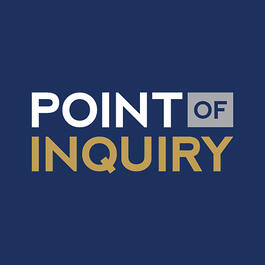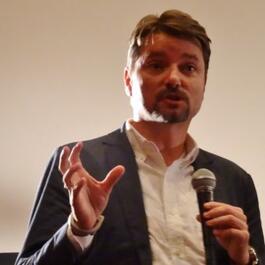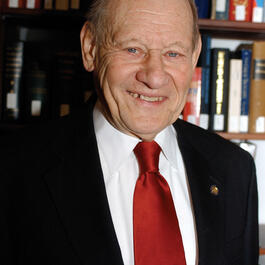
Paul Kurtz - Science and the Limits of the New Skepticism
Paul Kurtz is founder and chair of the Center for Inquiry and a number of other organizations. A Fellow of the American Association for the Advancement of Science, he is Professor Emeritus of Philosophy at the State University of New York at Buffalo, chairman of the Committee for the Skeptical Inquiry, the Council for Secular Humanism, and Prometheus Books. He is the author or editor of almost fifty books, including The New Skepticism: Inquiry and Reliable Knowledge. Throughout the last four decades, Kurtz has been a leading defender of science and reason against the prevailing cults of irrationality in our society, and has been interviewed widely in the media on subjects ranging from alternative medicine and communication with the dead, to the historicity of Jesus and parapsychology. In this conversation with D.J. Grothe, Paul Kurtz discusses the rationale for changing the name of CSICOP to the Committee of Skeptical Inquiry. He argues that the organized skeptical movement should apply the methods of scientific and skeptical inquiry to religion, and not just to paranormal claims, and he contrasts this approach with a direct atheistic assault on belief in God. He argues that while skepticism is essential to science, that the skeptical movement should promote the application of the methods of scientific inquiry into politics and economics, and talks about how divisive this may be within the skeptical movement. He considers whether political and economic questions are as amenable to critical thinking and skeptical inquiry as are paranormal claims. He talks about global warming and the extent to which the scientific community should be attentive to "global warming skeptics." He explains why he is cautious of certainty, contrasting certain knowledge with reliable knowledge, and recounts examples in the history of science when widely believed scientific theories were overturned by a small minority of new theorists. He talks about political and economic views he once held that he no longer holds. He contrasts skeptical inquiry with the classical skepticism of ancient Greece and Rome. And he argues that the new skepticism is not negative nor nay-saying, but rather is an affirmative and constructive philosophical worldview.
From "Point of Inquiry"




Comments
Add comment Feedback